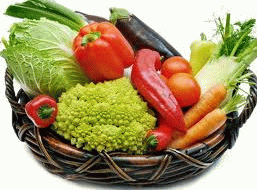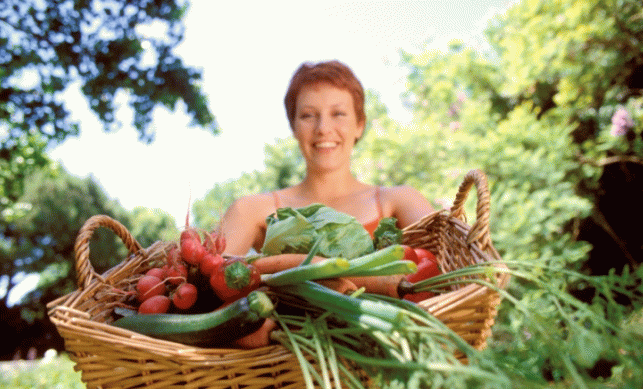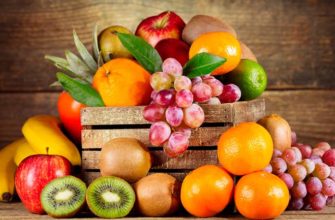After restrictions on food during pregnancy, a woman is waiting for another crucial period - breastfeeding. At this time, the young mother always raises the question of which products are needed, and which are better to refuse. One of the most controversial issues is eating vegetables.

The quality and composition of breast milk directly affects the development of the baby. Nursing mothers are not in vain worried about their diet and consult with GV specialists, doctors, and their friends, look for information on the Internet about what foods can be eaten during breast-feeding (what you can eat with breastfeeding - product list) and in particular what vegetables can be eaten during breastfeeding.
Many breast-feeding women generally exclude vegetables from the diet during the period of HS, for fear of negative reactions from the baby’s gastrointestinal tract (colic, gas, bloating, etc.) and also fear of allergic reactions in the infant.
However, a nursing mother must eat varied and high quality in order to restore the body after childbirth and give the baby all the necessary vitamins and minerals. The main assistants in this task are just vegetables.
If they are deficient in the diet, constipation can occur in a nursing mother, because due to the fiber content they act as a natural mild laxative. There is a risk of gaining excess weight, since vegetables will have to be replaced with products with a higher calorie content. And, of course, vegetables are one of the main sources of vitamins that are so needed during lactation.
What vegetables can be eaten for hepatitis B: allergy to unknown foods
The most useful vegetables for a nursing woman are those grown in your area and typical of local cuisine. They should correspond to the season: in summer and autumn it is better to include fresh vegetables in the diet, and in winter and spring, frozen ones will be more beneficial.
Any vegetables should be included in the menu gradually, one type every two to three days, and start with small portions. Thus, in just a few months, a nursing woman will be able to expand the list and calmly eat almost all the products she is used to without fear of negative consequences for the baby. If there is a reaction to the introduction of a new vegetable, it is not necessary to completely abandon it. Raw vegetables can be replaced with baked and stewed ones. However, the risk of such reactions is greatly exaggerated and they arise in a very small percentage of babies.
Allergies can occur in a baby, especially as a result of eating some rare and exotic vegetables. Although it can occur on ordinary vegetables familiar to you: each child is different!
In many cases, fears are exaggerated: Yet vegetables are a source of vitamins. Moms should always take care that they are not spoiled. You should not buy vegetables in dubious places where they are stored for a long time in the warehouse and may be processed with various chemicals. Many imported vegetables contain pesticides and nitrates, which can harm the health of the child.
During breastfeeding, mothers should enter the diet
Allowed vegetables for breastfeeding mothers are vegetables that you are used to eating every day: carrots, potatoes, cabbage, peppers, cucumbers, zucchini, and eggplant.
- potatoes. This vegetable includes thiamine, necessary for the proper development of the child's body;
- beet. Contains a high concentration of vitamin C, is the prevention of constipation. Beetroot caviar or borsch, as well as simply boiled root vegetables, are useful for anemia;
- carrot. It is rich in carotene, vitamin B6, vitamin A, which has a beneficial effect on the vision of mother and baby;
- zucchini. Rich in trace elements such as copper, magnesium, iron, potassium and calcium;
- Bell pepper. Rutin and calcium, which are part of it, strengthen the capillaries. It is better to eat green and yellow peppers;
- eggplant. They are a source of pectins that improve metabolism;
- celery. It helps with bloating, saturated with vitamins B and E, carotene;
- cauliflower. Contains folic acid, necessary for the good mental development of the child. This vegetable is also useful for intestinal microflora;
- green onions. It contains beneficial substances - flavonoids and a large number of vitamins and minerals.
What vegetables should be used with caution
- cucumbers. This is a vegetable with a very low calorie content and a minimal risk of allergies. However, it can cause increased gas formation in the baby, so lactating mothers are not recommended to abuse it, especially in the first month of the child’s life (detail about cucumbers);
- Tomatoes Contain zinc, iron. They are a good prevention of anemia and osteoporosis. However introduce them into the diet up to a month not worth it. Eating tomatoes is more beneficial when fresh. If you are allergic to red tomatoes, you can try yellow ones that are hypoallergenic (detail about tomatoes);
- White cabbage. In its raw form, it is better not to use it, just in case, at least for the first month. A vegetable can cause fermentation in the intestines and bloating, although the child does not necessarily have the same problems. It is recommended to exclude sauerkraut, which is a rather aggressive product. But stewed and boiled cabbage can be eaten safely;
- legumes. They can cause colic and increased gas formation, so it is better to abandon their use until the child is 3 months old. By this time, his gastrointestinal tract is sufficiently formed and colic usually disappears. Then you can start to try peas, beans, lentils in boiled or stewed form, controlling the reaction from the baby;
- Onion and garlic. In the first month of life, crumbs to eat these foods are not recommended. They give a specific taste to breast milk and can cause the baby to refuse to breast. In the future, you can gradually introduce into the diet these garlic and onions in reasonable quantities.
- Exotic vegetables for our area, such as avocados, Jerusalem artichokes, etc. They can cause allergies or indigestion in the baby.
There is a belief that during the period of breastfeeding it is impossible to eat vegetables of bright color. It's a delusion. If a woman does not have an allergy to this type of vegetables, you can safely eat pumpkin, beets, carrots and tomatoes, despite their bright color.But what nursing mothers really should not eat is canned vegetables. Pickles contain hazardous compounds - salt, vinegar, and spicy seasonings. It is possible to get acquainted with them to the baby in the last turn, when its digestion has already been established and a complex of necessary enzymes has been developed.
How to consume vegetables during lactation
 If possible, you need to eat fresh vegetables. But do not get too carried away with raw food, especially while the child is very small, since they are harder to digest. The most harmless methods of heat treatment are cooking (especially steaming) and baking. This allows you to maximize the benefits of products.
If possible, you need to eat fresh vegetables. But do not get too carried away with raw food, especially while the child is very small, since they are harder to digest. The most harmless methods of heat treatment are cooking (especially steaming) and baking. This allows you to maximize the benefits of products.
Do not forget about seasonality. Early vegetables are often processed for faster ripening. Imported vegetables, which are also often processed to make them salable, can also be a danger. Fresh greens can be grown independently, even on the windowsill.
Breastfeeding is a responsible and happy period in the life of a mother and her baby. It is during this period that the nursing mother transfers the baby along with breast milk immunity and a particle of her love. Proper nutrition, enriched with vegetables and fruits, will help mom recover her strength and give her baby everything she needs, and her baby - develop harmoniously.
READ ALSO:
What kind of fruits can a nursing mother eat while breastfeeding?
Fruits in the nutrition of a nursing mother
Nina Zaichenko: mother’s nutrition. General principles










Cabbage is not what you can, you need to eat it. Cabbage has a lot of vitamins.
It is possible in moderation. A bit of everything. At the expense of garlic and onions - I agree.
Since I really love potatoes, when I breast-fed my baby, I often cooked myself stewed potatoes with zucchini - tasty, and also nutritious and healthy for a small organism.
The most important principle is that you need to eat vegetables and these should be vegetables familiar to you. It is not necessary to abuse anything and, naturally, it is necessary to watch the reaction of the baby. As for garlic and onions, I agree, but they can also be consumed stewed. In any case, the more varied your diet, the better for you and the crumbs.
If a nursing mother has a high blood sugar level, I can recommend eating sweet potato. This root vegetable is a relative of potatoes, only sweet. Moreover, this sweetness comes from harmless fructose. And do not abuse - one yam per day is enough.
Is beetroot and carrot not an allergen?